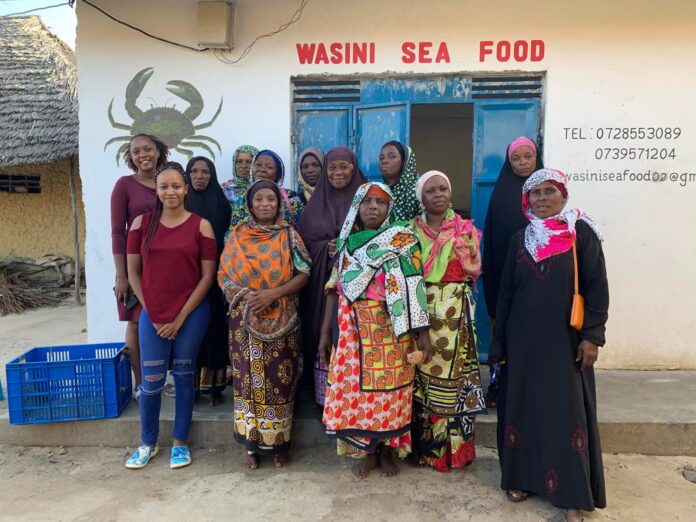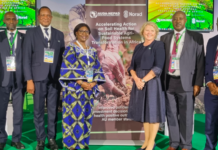By Ruth Keah
Kipini, Tanariver: In the coastal village of Kipini in Tanariver County, Joyce Mramba, a 55-year-old woman, has become a household name among the fishing community. Her mission is clear: to empower women and raise awareness to ensure they benefit from the blue economy and transform the lives of many in the predominantly Muslim community.
Joyce, the coordinator of Kipini Tuna Women in Fisheries, said it was taboo for women to engage in fishing activities along the Indian Ocean. In a community where poverty was rampant, many women resorted to fish value addition, often leading to a perilous trade of exchanging sex for fish with the local fishermen.
Recognizing the challenges faced by women in accessing fish for purchase, Joyce decided to challenge the status quo.
“If you didn’t have a man, it was a big challenge. Women had to engage in sex for fish. That’s what I saw and decided to start empowering women,” she said.
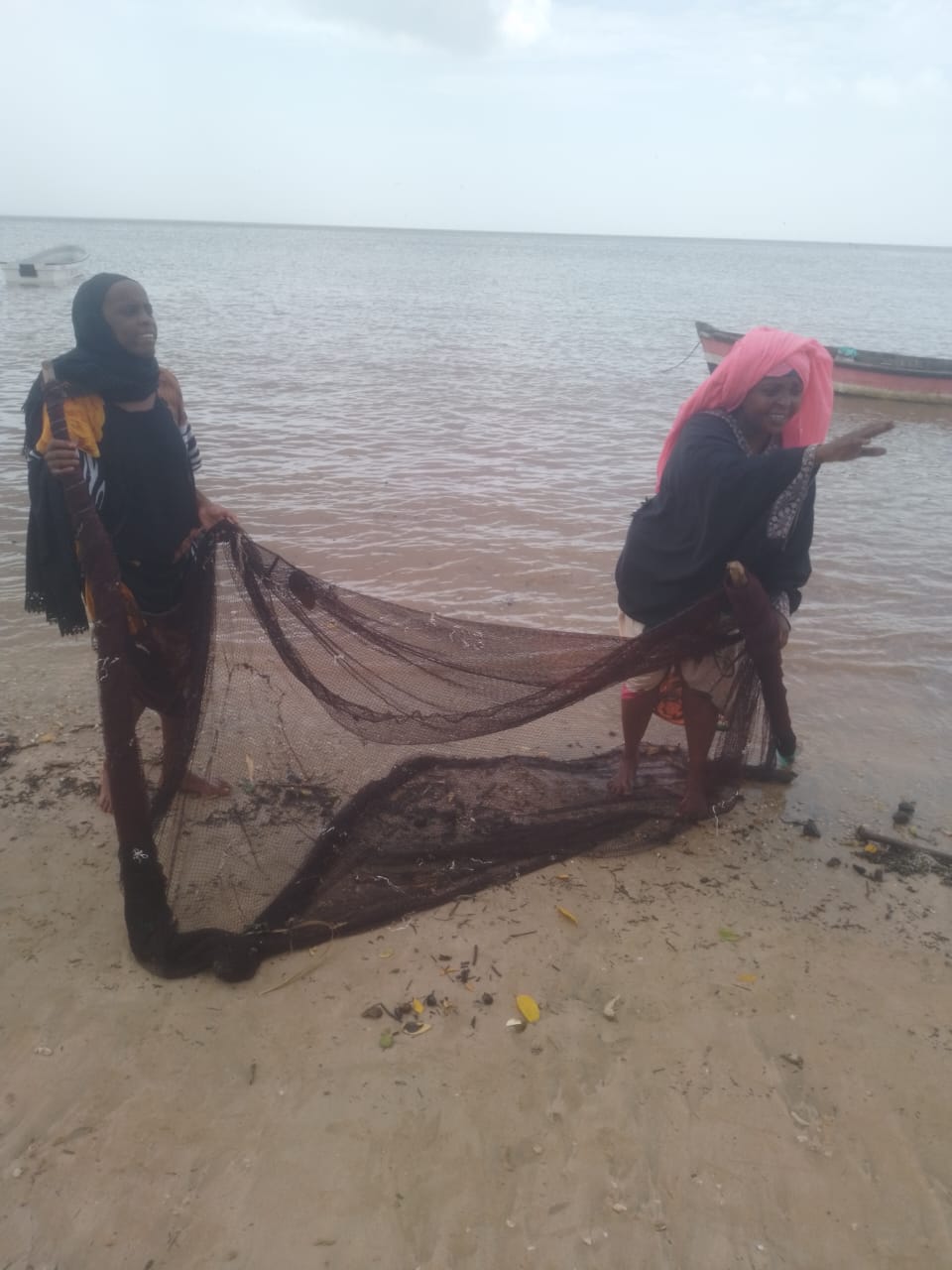
However, she said changing the narrative wasn’t easy. Joyce embarked on a journey of creating awareness by organizing community gatherings and engaging with members. She emphasized the importance of including women in fishing activities and highlighted the health risks associated with the practice of exchanging sex for fish.
“I am happy to say that the mentality of sex for fish is not there anymore. Now we can go and do fishing, come back with our catch, and engage in value addition, despite the challenge of not having enough fishing gear. This has not only improved our daily earnings but has also enhanced our livelihoods,” she said proudly.
Since she began her awareness campaign in 2012, the Kipini Tuna Women in Fisheries group has grown from 5 to 35 members. Most of these women are of the Muslim faith, actively participating in prawn fishing from the Indian Ocean. The group now earns up to Kshs 5,000 per day.
From 2012 until now, women have emerged as vibrant contributors to ocean activities, a transformation attested to by Habiba Dida, the Secretary of the Kipini Tuna Women in Fisheries. She engages in both fish value addition and direct fishing activities.
Habiba recounts her decision to enter the realm of fishing activities, a choice driven by the challenges she faced in obtaining fish from men at the ocean.
“I used to buy fish, fry them, and sell them. However, boat owners weren’t providing us with fish unless certain favors were extended. That’s when we made the decision to take matters into our own hands and venture into the ocean for fishing,” she explained. This shift she said has proven immensely beneficial for her.
“Engaging in ocean activities has significantly increased my daily earnings. I’ve been able to provide education for my two girls, and through diligent savings, I’ve acquired around 15 pieces of wood. My plan is to construct my own boat, which I’ll use for fishing in the ocean. Whatever I harvest will come directly to me,” she said.
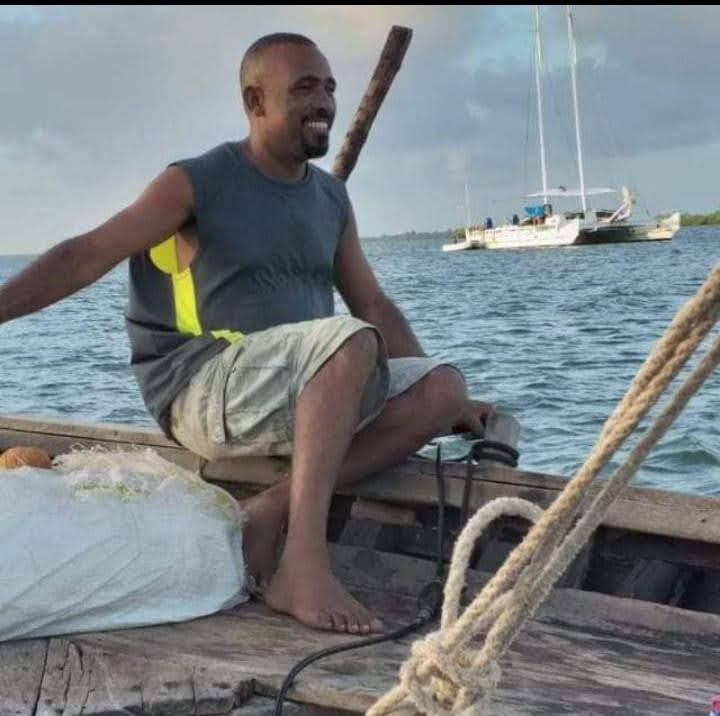
Somo Mohammed, the Chairman of the Indian Ocean Water Body Network, oversees 99 Beach Management Units along the coastal region and drives a transformative agenda for gender inclusivity in the blue economy space. Under his leadership, he said the implementation of the gender rule aims to ensure full representation of women, marking a significant stride towards equality and empowerment.
Mohammed said implementing the rule has had a positive impact, citing the notable efforts of groups such as the Kipini Tuna Women in Fisheries and women who now own fishing boats. He said this collective endeavor has successfully diminished the prevalence of the sex-for-fish business in the region.
“We have fully engaged women, and now we see them as boat owners. Boats proudly bear female names, indicating ownership by women. This is a remarkable achievement that was absent before,” he emphasizes.
He said the expanded role of women in the blue economy is evident as they actively participate in prawn and octopus fishing, as well as engage in octopus fishery closures to optimize yields.
Octopus fishery closures prohibit fishing activities in a designated area for a specific period, providing protection and conservation measures for marine life and habitats leading to increased yields and more catch for fishers.
Mohammed highlighted that this initiative has empowered women to actively contribute to their families, relieving men from the sole burden of providing for the household.
“In the past, men were solely responsible for supporting the family, but now there’s a positive shift. Women can now share household responsibilities with men on an equal footing, contributing half by half,” he concluded.
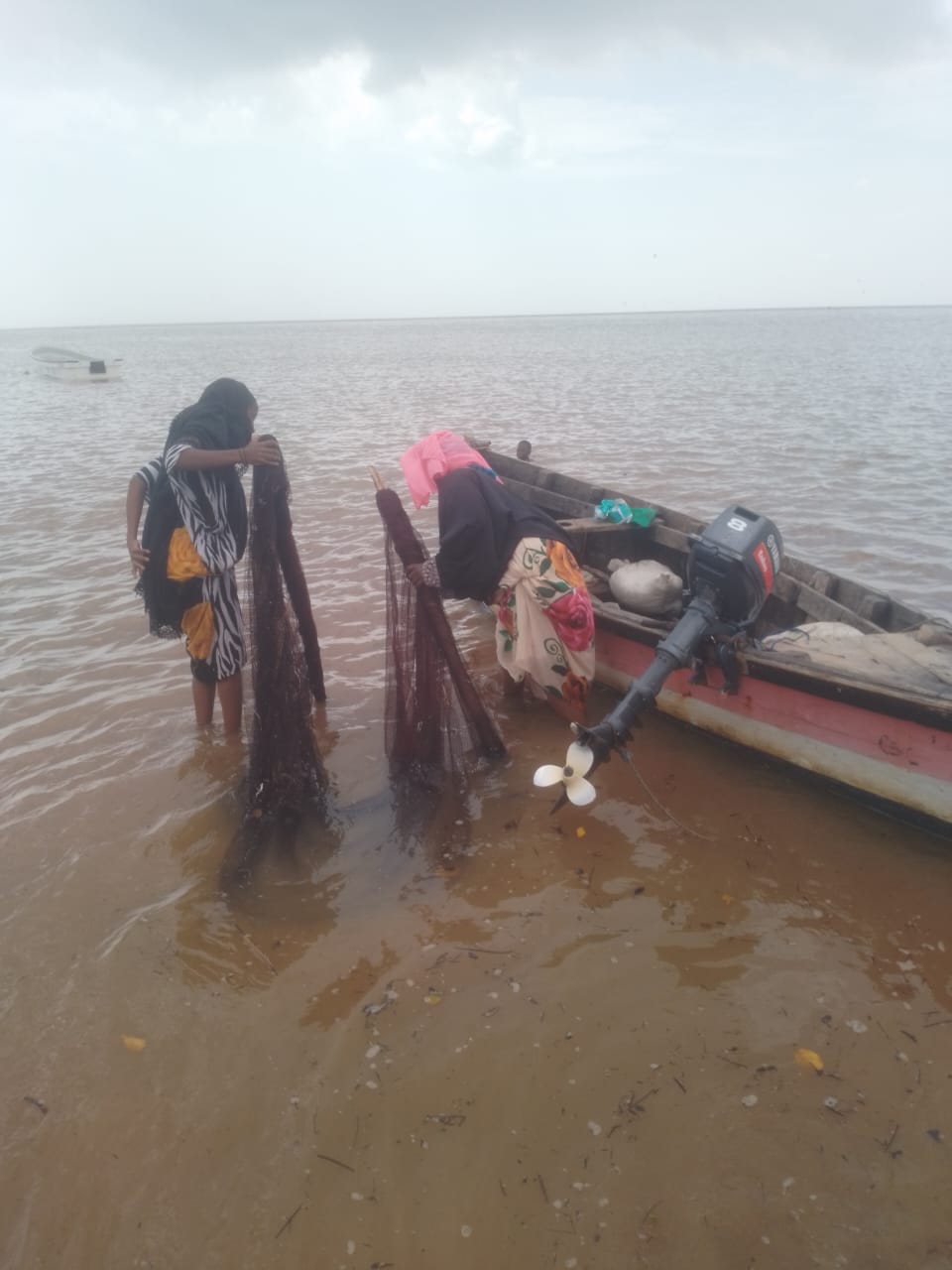
Speaking at a workshop on broadening stakeholder engagement for effective advocacy towards promoting sustainable blue economy and fisheries development in coastal kenya, which brought together stakeholders from the Government representatives (both County and national Government), Representatives from civil society groups including, the NGOs, fish trader associations, beach management units and academia, Hadley Becha, the chairman of Tuna Fisheries Alliance of Kenya (TuFAK) a network of Civil Society Organizations, fisher associations, NGOs, the private sector fishery industry said despite many post fishing activities being done women ,their voices and contributions in the sector has not been seen.
He noted that, as in many other fishing communities, the fish business is traditionally divided by gender roles. Men typically own the boats and engage in fishing activities, while women purchase the fish from them to sell at the market. However, obtaining an adequate supply of fish can pose challenges, leading to undesirable social behaviors.
“Sometimes, acquiring the fish becomes problematic, and as a result, incidents of sex-for-fish may occur. Unlike research conducted in Lake Victoria, there hasn’t been a comprehensive study to determine the prevalence of sex-for-fish practices here on the coast. It’s possible that such activities are happening discreetly,” he explained.
“We chose to involve women to better understand their challenges and explore ways to ensure they benefit from the blue economy. This aligns with the Kenyan constitution, specifically Article Ten, which emphasizes the principles of good governance, advocating against discrimination among women, youth, and people with disabilities,” he added.
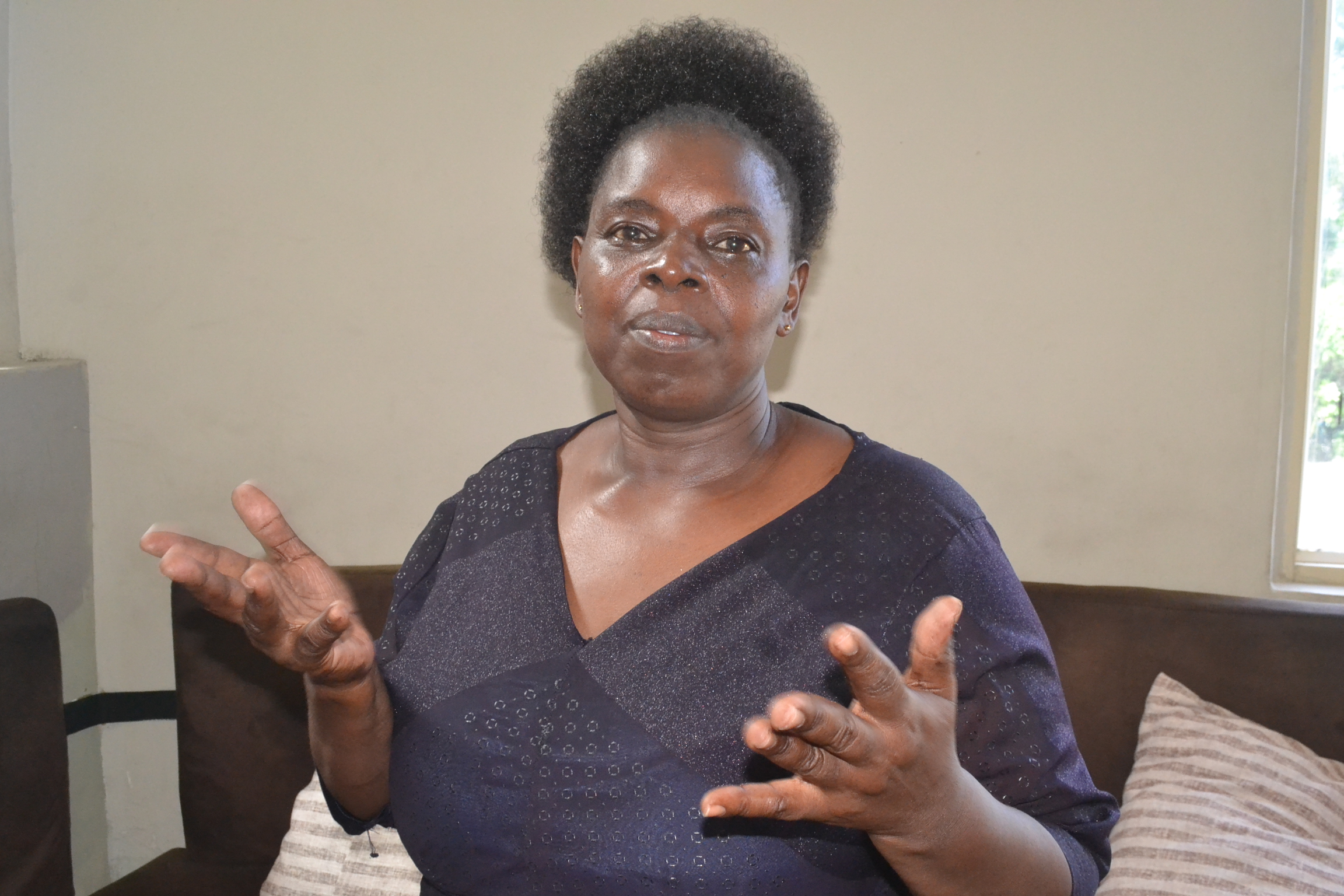
Becha stressed the importance of reevaluating or eliminating outdated cultural values that may hinder women’s participation in various activities, including fishing. This shift is essential to enable women to actively contribute to providing for their families and enhance their overall livelihoods, working hand in hand with men.
John Kareko, a marine expert, acknowledged that historically, women were not actively engaged in ocean activities. However, he noted a positive shift.
“In the past, fishing was predominantly considered men’s activities, and planning efforts primarily focused on men. This meant that even if women were fully capable of participating in these activities, they were often left behind. Fortunately, there has been a noticeable change, with women now actively included and a growing inclusivity even in fishing leadership roles.”
“If we include everyone, it will also help us speak in one voice. When we advocate for environmental conservation alongside fishing activities, women, youth, and men will all comprehend the importance. However, if our focus is solely on men, women and youth might feel excluded, making it challenging to establish effective breeding grounds for fish,” he added.
He highlighted the positive trend within women groups like Kipini Tuna Women in Fisheries and Bamburi Beach Management Units where women are actively participating, even in leadership roles. According to him, this indicates a shift in perception, demonstrating that people are increasingly recognizing and believing in the capability of women to lead in fishing groups.
“We have also witnessed NGOs empowering women on how to actively engage in the blue economy sector. The tangible results are apparent, as many women have demonstrated their capability to excel in their roles,” he concluded.

